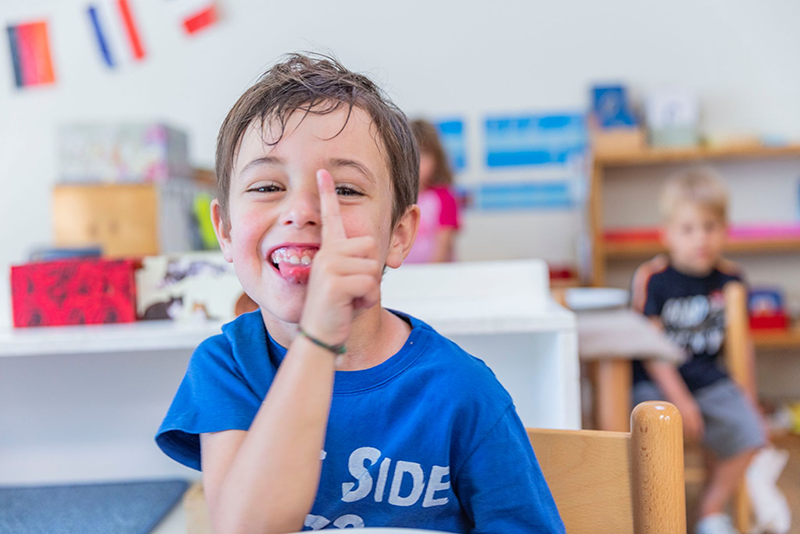Presenting the Consortium (part 3 of 10)
by Michele Vezzoli
The path of a Montessori kindergarten in promoting the ability to self-regulate children in quarrels
Changes arise from needs
In fact, we can change when we feel the need to respond to daily needs: this was also the case for Sassolino when in 2011 he introduced the educational approach to the quarrels proposed by Daniele Novara’s CPP. In fact, everything was born from the difficulties encountered by the teachers in accompanying a child with special needs.
In just over a month the method Litigare Bene became for the Sassolino a new practice to manage peer conflicts. This approach, in addition to making children more autonomous, gave the opportunity to that child to resize his problems, learning to manage his emotions more effectively.
Facilitating, not directing
The Sassolino is a Montessori kindergarten, run since 2015 by Fondazione Intro (Gavardo, Brescia, northern Italy). Founded in 2007 by the desire of a group of parents to offer their children a different education, the school now hosts about 40 children.
The small size of the school has certainly facilitated the experimentation of Litigare Bene, an experience that has integrated perfectly with the Montessori matrix of the school.
In the Casa dei Bambini “Il Sassolino” the teachers accompany the children in their learning experiences, first of all by providing an environment full of stimuli, within which children can choose their own paths, and realise them according to their own times.
The teacher is therefore called to facilitate, rather than to direct, in the first place by exercising observation. This aspect has facilitated the assumption of a different role also in the management of the quarrels, overcoming the traditional setting, in which the adult stands as referee or judge, taking away from the children their protagonism.
Better not to avoid conflict
Conflict, however, is a fundamental moment of growth: when you are adequately supported, allows you to enter into a relationship with your own emotions and those of others, helps to recognize the partiality of one’s point of view and recognize that of others, refines cooperation, negotiation and problem-solving skills.
The adults who inhibit and control children’s quarrels deprive them of fundamental opportunities to develop not only soft skills, but life skills.
From the first experiments to the Erasmus+ project
Over the years the Litigare Bene method has become more and more an element perfectly integrated in the educational proposal of the Sassolino, despite the changes in the teachers team.
In 2017, thanks to the funding of the local bank “La Cassa Rurale”, the researcher Valentina Giampieri helped Sassolino to verify the quality of the work done at school, mapping the quarrels and their characteristics, and proving that “arguing well” the ability of children to self-regulate in conflicting relationships between peers is increased.
In 2019, with the contribution of Fondazione della Comunità Bresciana, the trainer Annalisa Schirato accompanied about forty teachers of the public school of Desenzano del Garda in the experimentation of the method, involving about 300 children and 500 parents.
In 2021 we welcomed for a period of observation and training a delegation of the school “Ivana Gorana Kovacica” of Vrbovsko (Croatia) – current partner of this Erasmus+ Consortium.
The current challenge
It is to create tools to spread in schools educational approaches to the quarrelling between peers, that allow to develop fundamental social and relational skills, promoting active listening, emotional literacy, empathy and problem solving.
Children capable of quarrelling will become adults capable of open and constructive confrontation, and citizens protagonists of communities at the same time more open and more cohesive.
This is the challenge taken up by the Consortium “Arguing at school”: 10 organisations, 6 countries, 3 educational approaches initially mapped, 3 years of work to offer the world of school useful tools to build fundamental life skills.


